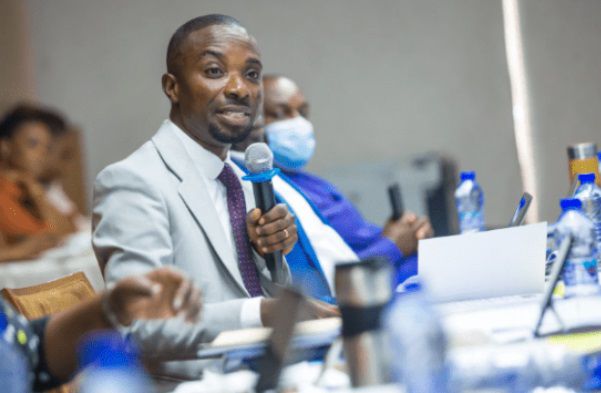The Ablekuma North by-election, held on July 11, 2024, became a focal point of intense political scrutiny and anxiety, with the ruling National Democratic Congress (NDC) poised to potentially secure a two-thirds majority in Parliament should they win the seat. This prospect ignited concerns within the opposition, particularly from Dennis Miracles Aboagye, an aide to former Vice President Dr. Mahamudu Bawumia, who alleged that such a supermajority would grant the NDC unchecked power and potentially lead to the manipulation of the 1992 Constitution. This claim underscores the high stakes of the by-election, transforming it from a local contest into a national battleground over the balance of power and democratic principles.
The NDC’s pursuit of a two-thirds majority raised alarm bells within the opposition, who viewed it as a potential gateway to unchecked authority. Aboagye’s warning of a “parliamentary dictatorship” reflects the fear that the NDC, with the ability to amend the constitution at will, might erode democratic safeguards and impose its agenda on the nation. This concern resonates with the broader anxieties surrounding the concentration of power and the potential for its abuse, highlighting the importance of checks and balances within a democratic system. The opposition’s rhetoric paints a picture of a potential constitutional crisis, urging voters in Ablekuma North to consider the national implications of their choice.
The by-election itself was marred by several incidents of violence and disruption, further escalating tensions and casting a shadow over the democratic process. Reports of thuggery, assaults on journalists, and the interruption of voting at certain polling stations raise serious questions about the integrity and fairness of the election. The viral video of a police officer assaulting a journalist, leading to the officer’s interdiction, further exemplifies the breakdown of order and the vulnerability of those attempting to document the electoral process. These incidents, coupled with the political rhetoric surrounding the by-election, contribute to an atmosphere of unease and distrust.
Beyond the immediate political implications, the Ablekuma North by-election serves as a microcosm of broader challenges facing Ghanaian democracy. The potential for a single parliamentary seat to drastically shift the balance of power underscores the fragility of democratic institutions and the vulnerability of constitutional safeguards. The incidents of violence highlight the ongoing struggle to ensure free and fair elections, and the importance of protecting the rights of journalists and citizens to participate in the democratic process without fear of intimidation or violence. The by-election becomes a crucial test of Ghana’s democratic resilience.
The heightened political rhetoric surrounding the by-election, with accusations of potential constitutional tampering and warnings of a “parliamentary dictatorship,” underscores the deep divisions within Ghanaian society. The by-election reveals the underlying tensions and anxieties surrounding power, governance, and the future of democratic institutions. The concerns raised by the opposition, whether founded or not, reflect a broader societal concern about the potential abuse of power and the need for strong democratic checks and balances.
The Ablekuma North by-election, therefore, transcends its local context and becomes a significant event in the ongoing narrative of Ghana’s democratic journey. It exposes the vulnerabilities of the system, the importance of upholding democratic principles, and the challenges of maintaining peace and order during electoral processes. The incidents of violence and the heated political rhetoric underscore the need for continued vigilance in protecting democratic institutions and ensuring that the voice of the people is heard and respected. The outcome of the by-election will have far-reaching consequences, shaping not only the immediate political landscape but also the future trajectory of Ghanaian democracy.


